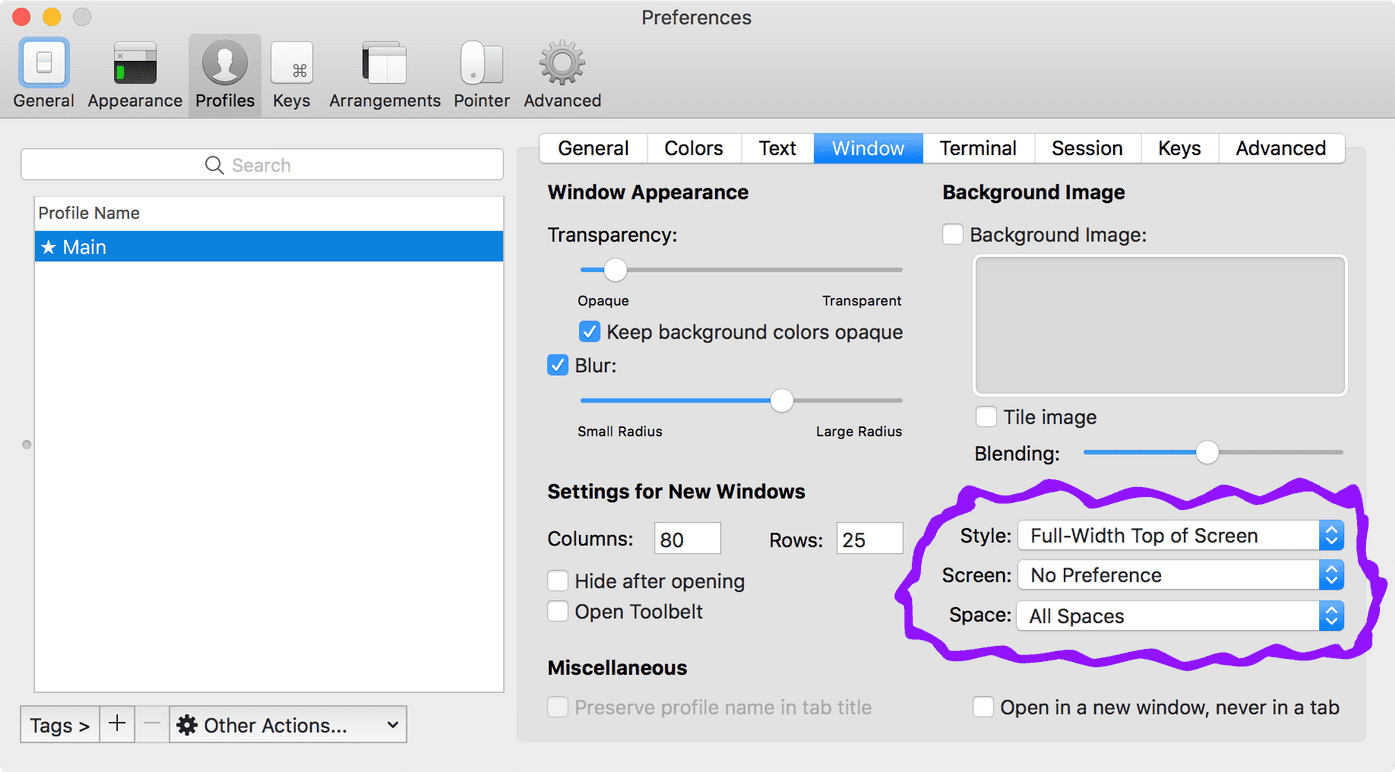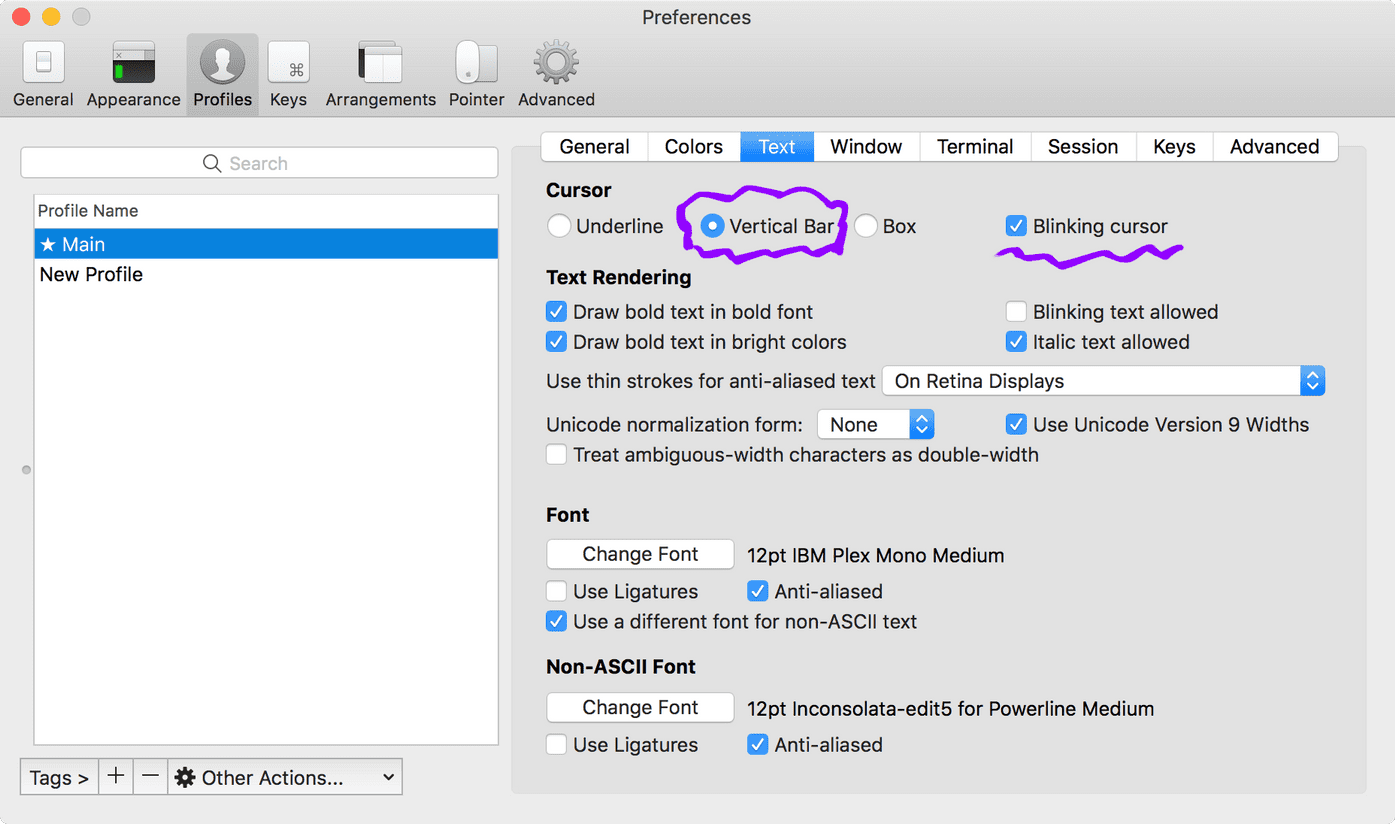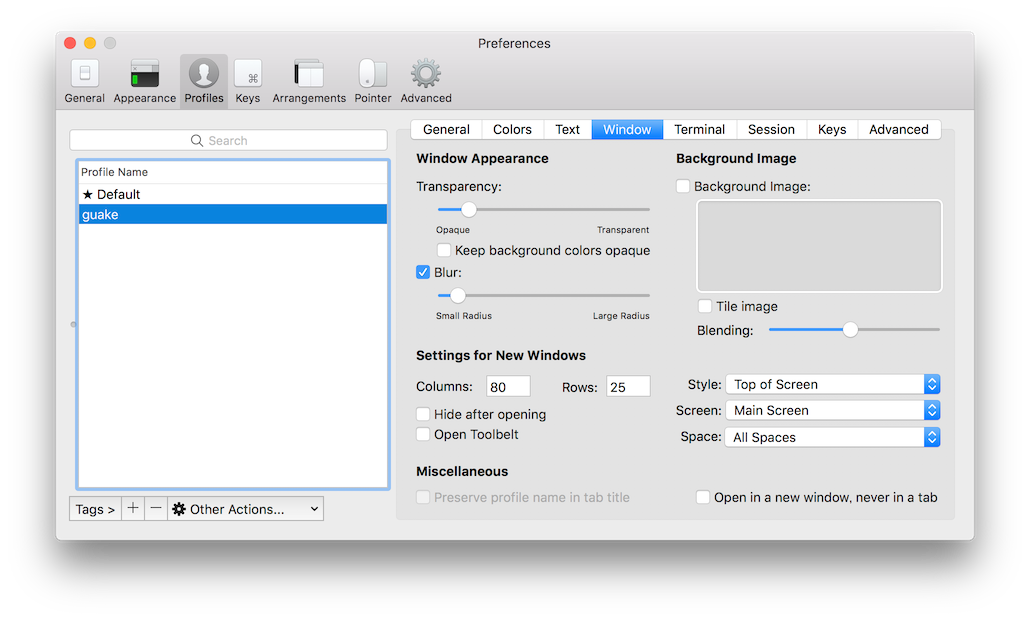
Also, to get italic text, your terminal must support italics. For example, some terminal emulators will brighten the colors instead of bolding text, and some color themes use the same values for the normal and bright colors. Note that what styling looks like will be controlled by your terminal emulator. 'bold italic fg:purple' sets bold italic purple text.'underline bg:#bf5700' sets underlined text on a burnt orange background.'bold fg:27' sets bold text with ANSI color (opens new window) 27.'bg:blue fg:bright-green' sets bright green text on a blue background.'fg:green bg:blue' sets green text on a blue background.
#Iterm profiles keys full#
For details on the full syntax, consult the advanced config guide. Here are some examples of style strings along with what they do. This is done with an entry (usually called style) which is a string specifying the configuration.

Most modules in starship allow you to configure their display styles.

This can be used to style the first part. In the second part, which is enclosed in a (), is a style string. You can add texts, variables, or even nested text groups in it. The first part, which is enclosed in a, is a format string. '$git_branch $git_commit' has the two variables separated with a space.Ī text group is made up of two different parts.'$git_branch$git_commit' is a format string with two variables named git_branch and git_commit.'$version' is a format string with a variable named version.The name of a variable can only contain letters, numbers and _. # VariableĪ variable contains a $ symbol followed by the name of the variable. You can use texts, variables and text groups in a format string. Most modules have an entry called format that configures the display format of the module. More escaping, newlines in declarations can be ignoredįormat strings are the format that a module prints all its variables with.

The following Starship syntax symbols have special usage in a format string and must be escaped to display as that character: $ ( ). In TOML syntax, text values (opens new window) are declared with ', ", ''', or """. via in "nodejs") and an empty space as a suffix. For example, the "version" variable in the "nodejs" module contains the current version of Node.js.īy convention, most modules have a prefix of default terminal color (e.g. Variable: Smaller sub-components that contain information provided by the module. For example, the "nodejs" module shows the version of Node.js that is currently installed on your computer, if your current directory is a Node.js project. Module: A component in the prompt giving information based on contextual information from your OS. setenv ( 'STARSHIP_CACHE', 'C:\\Users\\user\\AppData\\Local\\Temp' ) # Terminology


 0 kommentar(er)
0 kommentar(er)
